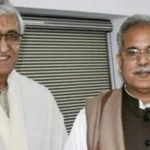In a notable medical development, Israeli Prime Minister Benjamin Netanyahu has undergone a procedure to receive a pacemaker, as confirmed by his office early on Sunday. This medical intervention comes in the wake of the Prime Minister’s recent hospitalization for dehydration, sparking concerns about his health. In light of the procedure, Netanyahu will be placed under sedation, prompting his top deputy, Justice Minister Yariv Levin, to temporarily assume his responsibilities.
The decision to proceed with a pacemaker implantation highlights the seriousness of the Prime Minister’s medical condition and the necessity of ensuring his well-being. A pacemaker is a small device that aids in maintaining a regular heartbeat and can be life-saving for individuals experiencing irregularities in their heart rhythms.
While the details surrounding the cause of Netanyahu’s dehydration were not specified in the statement, the recent health scare undoubtedly triggered a thorough medical assessment, leading to the pacemaker procedure. As the leader of a nation that is no stranger to political tension and security challenges, any health concern regarding Netanyahu naturally attracts widespread attention and raises questions about the continuity of leadership.
Prime Minister Netanyahu’s office reassured the public that the procedure was carried out with the utmost care and expertise. The medical team attending to him was comprised of experienced specialists in the field, ensuring a smooth and successful operation. Nonetheless, the delegation of power to Justice Minister Yariv Levin during the period of sedation remains a necessary precautionary measure to ensure that the country’s governance continues uninterrupted.
The political landscape in Israel has always been subject to fluctuations, and Netanyahu’s health concerns add a new dimension to an already dynamic environment. Throughout his tenure, the Prime Minister has been a polarizing figure, with supporters lauding his strong stance on security matters and critics challenging his approach to diplomacy and governance. Thus, his health condition inevitably stirs discussions about the potential impact on Israeli politics and its international relations.
With Netanyahu temporarily incapacitated, it falls upon Justice Minister Yariv Levin to shoulder the responsibilities of the office. Levin’s position as a top deputy places him in a familiar role within the government’s hierarchy, but stepping in for the Prime Minister is an unprecedented and weighty responsibility. The Justice Minister is expected to lead with prudence and adhere to the government’s existing policies during this transitional period.
Netanyahu’s health condition also sparks discussions about leadership succession within his political party. As one of the most prominent figures in the Likud party, his absence could trigger internal power struggles as other members vie for influence and prominence. Moreover, the opposition parties are closely monitoring the situation, looking for any potential weaknesses they can exploit to advance their own political agendas.
For the Israeli public, concerns about the health of their leader can evoke mixed emotions. Many citizens may express genuine worry and extend well-wishes for a swift recovery, irrespective of their political inclinations. At the same time, it can also serve as a moment of reflection on the transient nature of political power and the importance of strong institutions that can weather leadership changes.
Israeli Prime Minister Benjamin Netanyahu’s pacemaker procedure has brought to the forefront crucial discussions about leadership, governance, and political stability in the nation. As the Prime Minister undergoes recovery and rehabilitation, the country remains on the watch for any developments that may impact its political landscape. Meanwhile, the delegation of responsibilities to Justice Minister Yariv Levin aims to maintain continuity and stability during this period of transition. The thoughts and prayers of the nation are with their leader, as they await his return to full health and his resumption of his duties.




